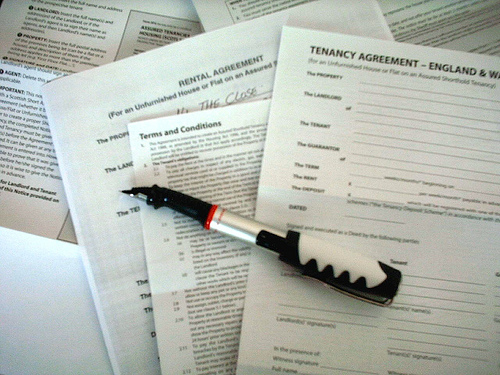Georgia wrongful death lawyers at our firm have explained the laws concerning wrongful death before in other articles. Today’s article will explain when a minor can still sue for the wrongful death of their mother or father who died, even if it happened years ago.
An action for wrongful death in Georgia is solely created by statute and does not exist in common law. What this means is that the Wrongful Death Act in Georgia, O.C.G.A. § 51-4-1 et seq., must be strictly interpreted and not extended beyond its plain meaning and explicit terms.
Wrongful Death Statute of Limitations Extended for Minors:
The language of the Act, given its plain and ordinary meaning, does not contain a separate, internal statute of limitation that applies specifically to a wrongful death claim. As a result, O.C.G.A. § 9-3-33, the general two-year statute of limitation for personal injury claims, applies to wrongful death claims that do not arise from medical malpractice.
Under § 9-3-33, actions for injuries to the person generally shall be brought within two years after the right of action accrues.
Consequently, the courts have made clear in Georgia that if you have a wrongful death in Georgia, you must sue within the two years of your loved one’s passing in order to secure your claim. However, if your mother or father died while you were still under the age of 18, i.e. a “minor,” you will still have an additional two years after you turn 18 to file a wrongful death lawsuit.
Wrongful Death: Terminating Life Support Without Family Approval:
Under State of Georgia law, the decision of whether to continue or terminate life support belongs exclusively to the patient’s family or legal guardian, not to the hospital, the doctors, or the State. A claim based upon a physician’s termination of life support of a child over the objections of the child’s parents constitutes a claim for wrongful death. DeKalb Med. Ctr., Inc. v. Hawkins, 288 Ga. App. 840, 843 (Ga. Ct. App. 2007)
In 2007, an important case arose after a young mother named Tara Hawkins fell and sustained severe head trauma. When Hawkins arrived at the Dekalb Medical Center, she was unconscious and sadly, she never regained consciousness. Hawkins, who was pregnant, remained on life support for nearly four months.
During that time, some of her physicians believed that she was brain dead and that her baby would not survive. Based upon these opinions, DMC repeatedly recommended an and the termination of her life support. Hawkins’ mother refused to agree to the abortion or termination of life support. On March 16, 2004, a DMC nurse discovered that Hawkins had spontaneously given birth to her son, Emmanuel Hawkins, without any medical assistance. Emmanuel weighed less than three pounds and suffered from numerous medical ailments.
Two days after giving birth, DMC terminated Hawkins life support, and she died that very day. There is no evidence in the record that, prior to terminating life support, Hawkins was terminally ill or that her death was imminent, nor was there any evidence that her brain function deteriorated or that her prognosis changed after Emmanuel’s birth. No family member, including Hawkins’ mother, had agreed to the termination of life support. Further, Hawkins did not have a “living will” or other advanced medical directive, and there was no court order giving DMC permission to terminate life support without the family’s consent.
On May 15, 2006, more than two years after Hawkins’ death, her mother, Nonnie Hawkins, as the next friend and natural guardian of Emmanuel Hawkins, filed a lawsuit against DMC, Marshall Nash, M.D., and DeKalb Neurology Associates, LLC. The lawsuit asserted a claim against DMC for “tortious termination of life support,” claiming that the hospital discontinued life support without the permission of her mother, the consent of any family member, or a court order.
The Georgia Court of Appeals ruled that based upon the plain language of the statutes at issue, the lack of an internal statute of limitation in the Wrongful Death Act, the lack of language limiting the application of the tolling provisions in the Wrongful Death Act, and the absence of any Georgia appellate court rulings to the contrary, that the minority tolling provision of OCGA § 9-3-90 (a) applies to a wrongful death action brought by a minor for the death of a parent when the action is not based upon medical malpractice.
What this means in plain English is that if you are a person less than 20 years of age whose father or mother was wrongfully killed (outside of medical malpractice reasons) you may still have a wrongful death claim against the person or entity responsible, even if your parent died long ago.
However, because this law is so complex and because the clock is ticking on the expiration date of such a claim, it is important to seek competent, legal counsel as soon as possible.
Continue reading →
 There have been times where we have had clients who have a default judgment against them for a case that they never even knew existed, i.e. proper service and notice were not provided. The good news, is that in order for a judgment to be valid proper service and notice is required.
There have been times where we have had clients who have a default judgment against them for a case that they never even knew existed, i.e. proper service and notice were not provided. The good news, is that in order for a judgment to be valid proper service and notice is required.  Georgia Injury Lawyer Blog
Georgia Injury Lawyer Blog



 Many commercial contract agreements have provisions for attorney’s fees in the event one party breaches the contract. The question is: what does Georgia law say about collecting attorney’s fees from a contract? The Official Code of Georgia Annotated law, O.C.G.A. § 13-1-11, talks about the validity and enforcement of obligations to pay such fees.
Many commercial contract agreements have provisions for attorney’s fees in the event one party breaches the contract. The question is: what does Georgia law say about collecting attorney’s fees from a contract? The Official Code of Georgia Annotated law, O.C.G.A. § 13-1-11, talks about the validity and enforcement of obligations to pay such fees.  Do I have a contract? Is my contract enforceable? These are all questions that our clients sometimes ask. Today’s article will discuss the definition of what a contract is in Georgia.
Do I have a contract? Is my contract enforceable? These are all questions that our clients sometimes ask. Today’s article will discuss the definition of what a contract is in Georgia.